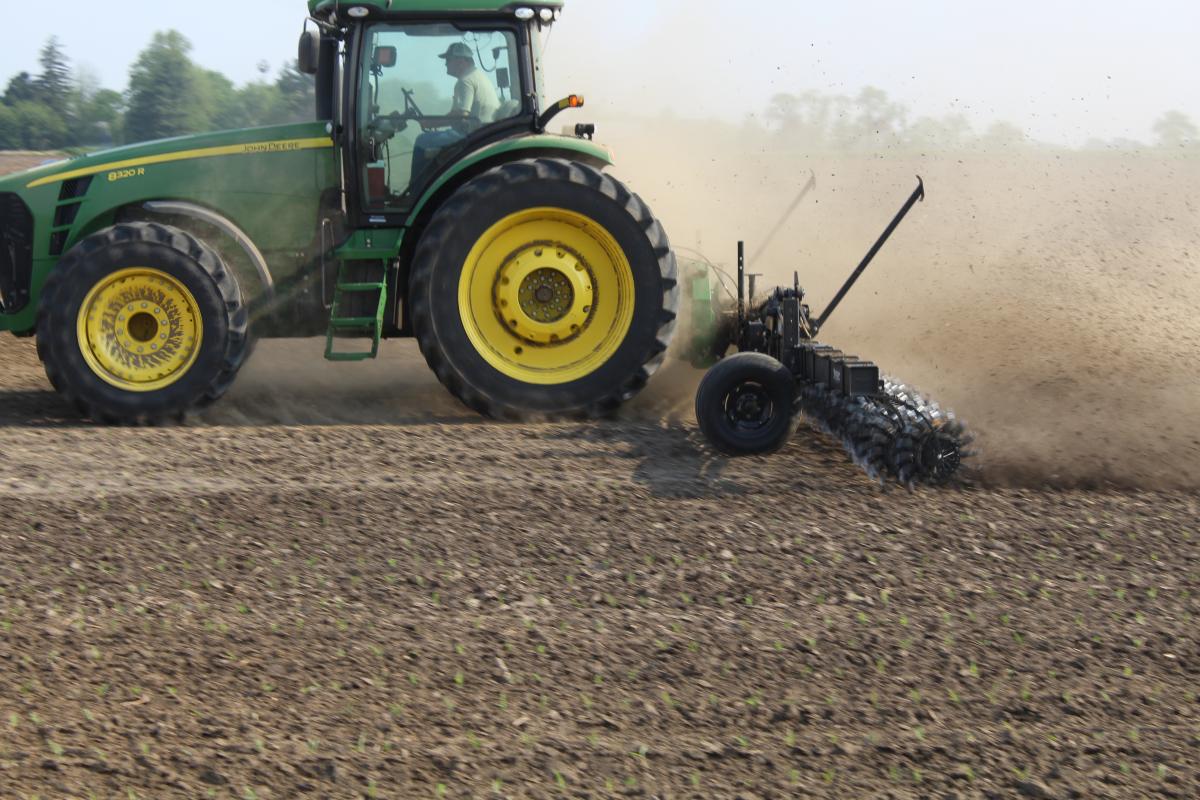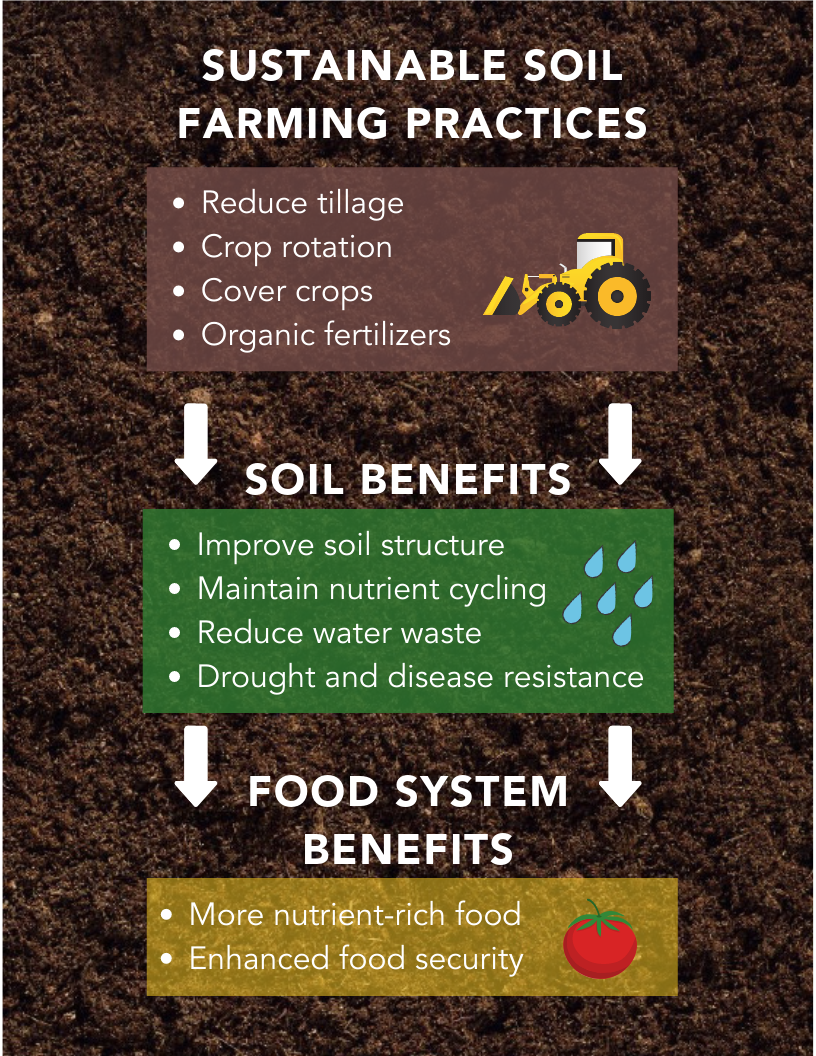Soil Health
Digging Into Soil Health
Soil is the starting point for our food. Soils are living systems, full of microbes and organic matter with nutrients. The availability of nutritious food is dependent on the health of our soils. Our planet’s growing population has placed increasing demands on the agricultural industry to produce larger yields in shorter amounts of time. While these technological advancements have saved farmers resources such as water and time, some of these advancements have been detrimental to our soil health. Intensive crop production depletes the soil, and can eventually harm the soil’s productive capacity, threatening its ability to meet the food needs of future generations.

Popular Practices
Monoculture
Traditionally, farms have grown only one type of crop on their fields, a practice known as monoculture. Soil used to grow a singular crop is fed nutrients only during one season of the year. For most of the year, monoculture leaves soil exposed to the elements and depleted of nutrients. Additionally, the continual growth of only one type of crop on a field causes the soil to become less resistance to disease.
Tilling
A widely used conventional farming practice is tillage, the process of preparing the soil for growing crops by stirring up and overturning dirt. Tillage reduces the amount of organic matter in the soil by ripping up the root systems. The level of nutrients and living microbes in soil is also reduced through tilling. Over time, tilled soil loses its structural integrity, and begins eroding.

Chemical Fertilizer
Advancements in chemistry and botany have produced an increasing number of herbicides aimed at achieving very specific objectives on particular types of crops. Chemical fertilizers often do not include organic matter, and overusing them for extended periods of time lead to only specific strains of crops being grown, leaving the plant species vulnerable to disease.
Transitioning to More Sustainable Farming Practices
Cover Crops
Farmers are recognizing the detrimental impacts of monoculture and tilling on their soil health, and beginning to utilize the practice less intensely. Instead, farmers are introducing cover crops to their fields. Cover crops refer an additional type(s) of crop grown during the off-season of a farmer’s primary crop. Cover crops do just what their name implies, cover. Cover crops are grown close together and are intended to shield the soil, minimizing disturbance. Without cover crops, the soil’s microbes are only fed for a few months of the year, when the primary crop is being grown. The additional living root system grown by cover crops jump starts the soil’s microbes, creating soil capable of growing more nutritious food. By introducing additional species of plants into a farmer’s growing calendar, the farmer helps protect his primary crop by nurturing more disease-resistant soil.
Organic Matter
Farmers are beginning to spread more organic matter on their fields, such as compost or manure, to improve soil health. Incorporating more organic fertilizers while shifting away from chemical fertilizers helps soil health by reintroducing organic matter and boosting disease resistance.
Benefits of Sustainable Soil Practices
Prioritizing soil health on a global scale is fundamental in achieving food security and combating climate change. Without more sustainable soil practices, future generations will be left with soil that requires intense amounts of resources to grow food – and that food will be deficient in nutrients. Farmers all over the world are introducing more sustainable soil practices, and have experienced dramatic improvements to their crop yields as a result.
